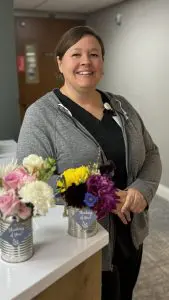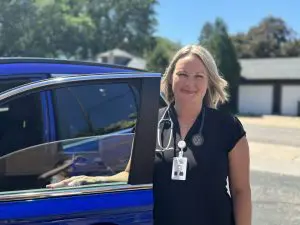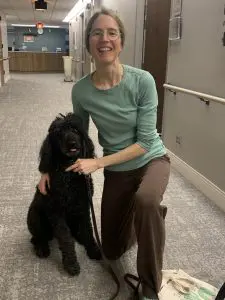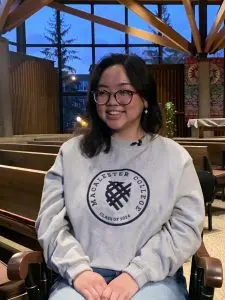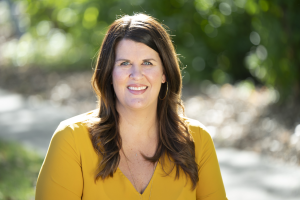People Aren’t Getting the End-of-Life Care They Want

When is the right time to discuss hospice with your doctor? Our Lady of Peace (OLP) has provided end-of-life care for decades, and we are continually puzzled by why individuals and families don’t approach us sooner. The key, we believe, is to start the conversation about hospice care early.
Nancy Larson, RN, CHPN, OLP Hospice & Home Health Care Director, says family members often ask us questions about hospice before a physician brings the subject up. They say, “I wanted to talk with my mom’s doctor, but I didn’t want to offend him, so I’m waiting for them to bring it up.” Nancy says, “For some reason, physicians may be reluctant to bring it up, and family members often avoid talking with their loved one about hospice because it will appear that they’ve given up hope.”
When patients enter our hospice care, their pathway to us becomes clearer. “It’s not unusual to read two months of physician notes that tell us there has been a continued pattern of decline in a patient’s condition,” Nancy says. “For example, when the condition of a person with congestive heart failure doesn’t improve or actually worsens, it may indicate that they’re not going to get better.”
It’s common for patients to be exhausted from going back and forth to the hospital when they could be well cared for in their homes, and it’s also exhausting for their families. Nancy says, “When a patient comes to us before a crisis, we have time to get to know them, educate ourselves on their condition, and control their symptoms and pain, so their quality of life is higher.” The average time for hospice care within a patient’s home is 99-100 days. OLP is not staffed for 24-hour care, but we help people find it. Typically, our patients are moved to our hospice residence when they need it, or in some cases, families care for their loved one themselves outside of the hours we provide care.
Nancy urges people to initiate the hospice conversation early. She advises, “Ask your physician or social worker at the hospital for assistance in completing the advanced care plan, Honoring Choice. This resource, available at hospitals and the Minnesota Medical Society, empowers you to make informed decisions about your care.”
Hospice is a gift and an insurance benefit you’ve paid for over the years. Pain is managed in hospice, so people feel better and can spend more time with family.
Read more about this topic in Maria Shiver’s Sunday Paper and reach out to us, if you have questions or would like more information.





